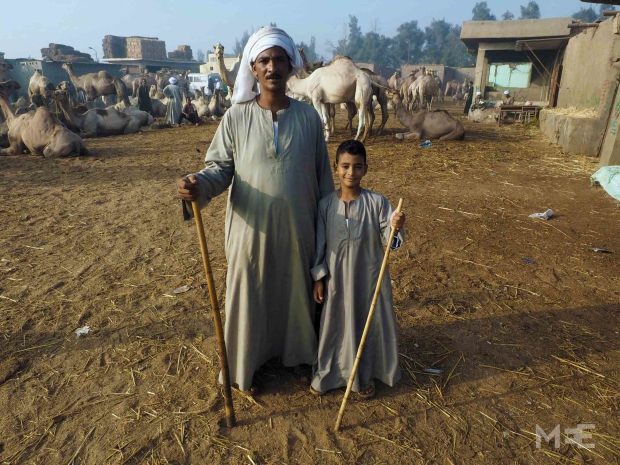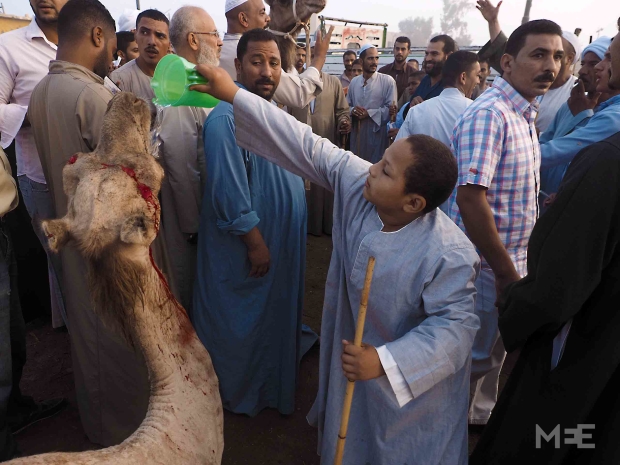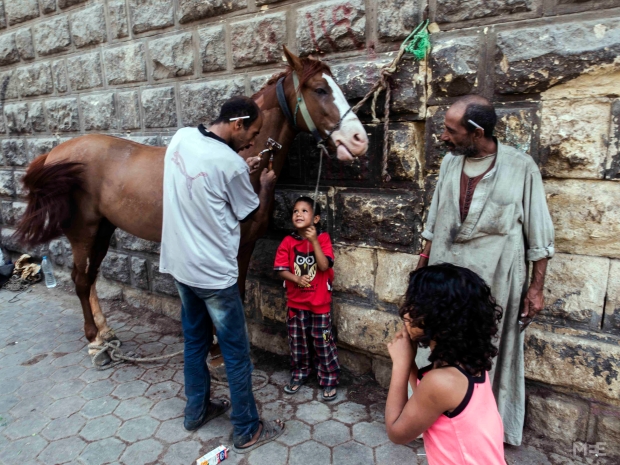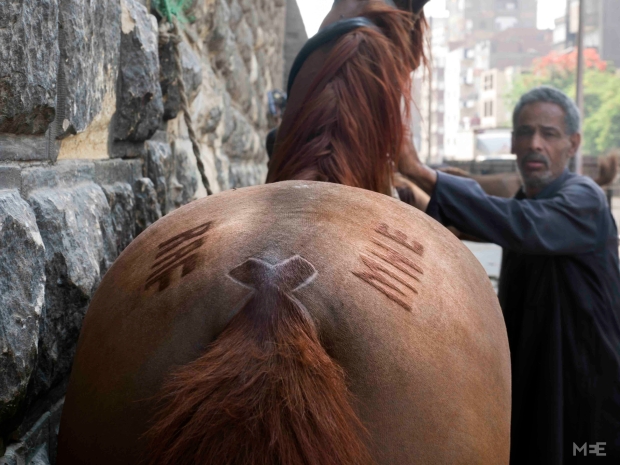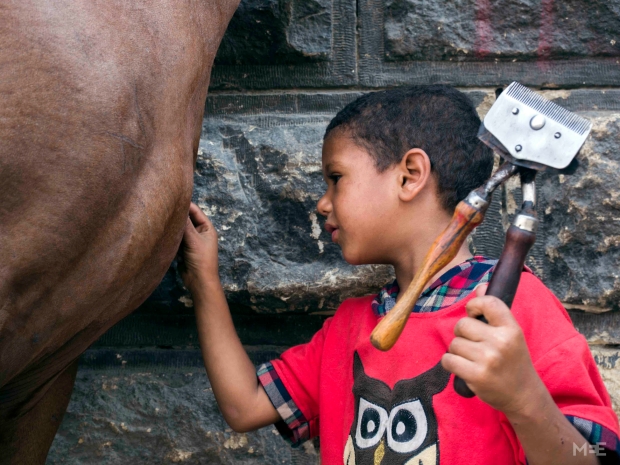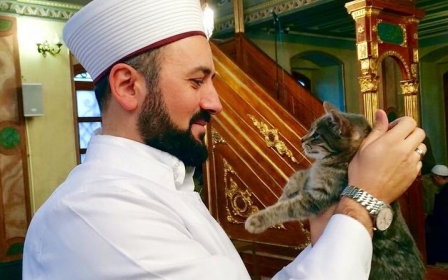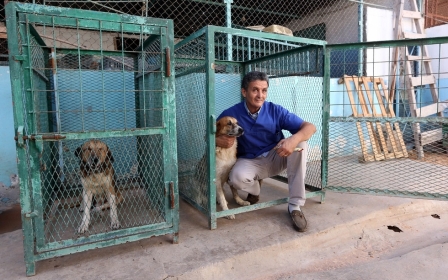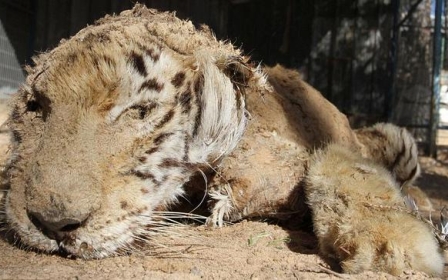Egyptian animal welfare: Cruel camel markets and kind donkey barbers
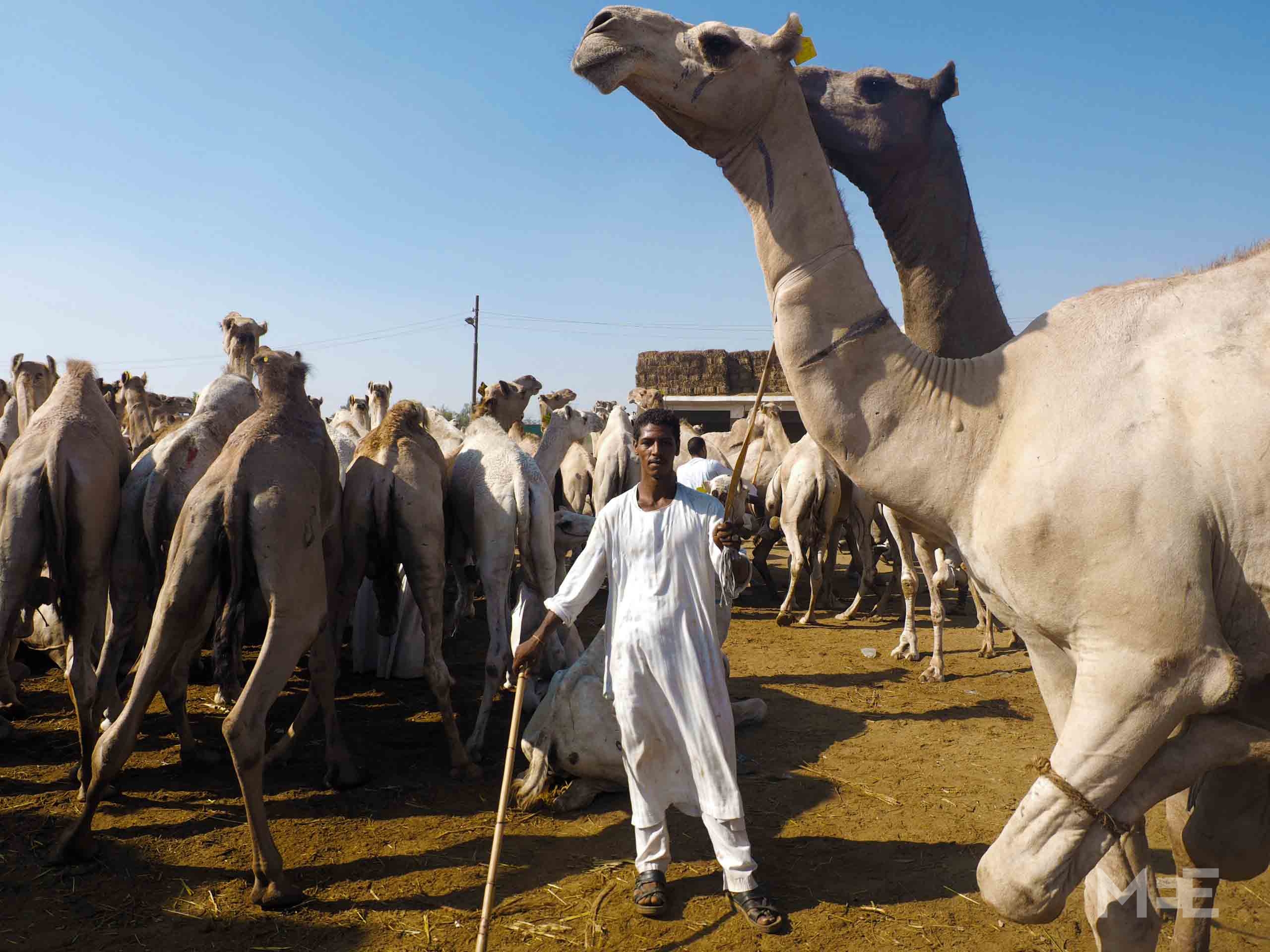
CAIRO - “Thousands of camels come to Birqesh each week... trucked in from as far as Sudan and Somalia,” said Mohamed Fawzi Fahmi, a camel seller from the village of Daraw, in Aswan province, a place also famous for its camel market.
Fahmi travelled more than 800 kilometres to sell his camel herd at the busy market where determined traders engage in animated bartering, buying and selling. Just 35 kilometres northwest of Cairo, Birqesh, Egypt's largest camel market, has been around since the 14th century, according to local tradition.
Most of the camels that survive the sometimes arduous journey to Birqesh will end up meeting the food demands of Cairo's nine million residents, while the rest can be used for farm work or tourism. Upon their arrival, the animals are sometimes emaciated or have open wounds from being packed into trucks in a long journey that does not necessarily have the best interests of the animals at heart - camels here are a commodity.
Growing resentment, rising prices
Due to a rise in camel prices, land rentals, camel food and import taxes, there is growing resentment among camel vendors at the market this year. “The additional cost is wasting our money; we are responsible for those flocks we brought from Sudan; we sell them and then send the money to their owners, and as farmers we are now certainly broke because we are paying for many things, including food and transportation. The camel price went up at least by 2,000 Egyptian pounds since last year.”
“The [importing] cost to bring the camels from Abu Simble [southern Egypt] to Daraw reaches up to 1,500 Egyptian pounds per camel and then we collect our money back after we feed and care for the camels. We are mostly losing money and by the end we owe people large sums.”
With the Egyptian economy struggling to stay afloat, the camel trade has also been affected by price hikes in other seemingly unrelated sectors such as oil and electricity. “Everything from the oil used for transportation, electricity for irrigation and dollar rates has had an impact on the market. Even Sudanese dealers charge in dollars while their currency is not [the] dollar,” Fahmi added.
In today's Egypt, most families are facing financial difficulties and their spending capacity has been stretched to the limit as a result of rising prices. The start of a new school year also embodies additional costs that families prioritise over what were once staples in daily life.
The camel trade has felt the impact of these challenges as camel sales are lower than previous years. Even though camel meat is relatively inexpensive compared to other meats such as beef and lamb, camels are less likely to become ill, and so there is less risk of traders sustaining losses.
Poor treatment of camels
But it is not just the economic environment of the country that is leading to financial instability in the camel trade. The market is also sustaining financial losses due to the ill-treatment of the animals. In fact, Birqesh is not for the weak-hearted and could be seen as an animal activist's nightmare come true.
The auction starts off by putting the camel in the middle of a circle of clients, followed by the camel vendor calling out his first price. As this sort of mini-auction takes place, the assistant shepherds tease the camel with their bamboo sticks by poking its genitals, beating its head and whipping its back. Local beliefs hold that the more resistance and agitation a camel shows, the greater its strength and youth, and subsequently the better the meat.
When asked about the way the animals should be treated, Sayyed Abu el-Shaikh, a shepherd from Farshout in Qena, says: “There should not be harsh treatment, but it depends. The Somali camels are not tame and they need to be beaten because they are strong. The Egyptian or Sudanese camels on the other hand can’t sustain a beating. You can't catch a Somali camel and you can’t put a saddle on it. But the Egyptian you can pet, you can put a saddle on its back, make him sit and make him stand up. The Somali camels are raised in the desert, but the Egyptian ones are raised in farms, so it’s easier to deal with them.”
For the majority of camels - Somali, Sudanese or even Egyptian - in the market, their chances of being sold slip away when they are hit and injured and do not prove to be robust enough. Although it may seem counter-intuitive to allow the "merchandise" to be battered or even left bleeding, since many of them will be sold for food, it is not seen as a major loss when dealing with some of the weaker animals. This is especially so during the Eid holiday season, when sales peak in preparation for celebrations and festivities.
Horse races, fame and glory
Not far from the market, an event is held each Saturday where carriage riders and owners gather at Upper Egypt highway in south Giza to race and place bets on which animal is the fastest. It is a melting pot of horse enthusiasts and donkey lovers that gather to make deals, show off their prized animals and bask in the adrenaline of a rush to the finish line.
Araby, 35, is a butcher who owns a cart pulled by horses. “I just love to come and watch the races. Egyptian horses are judged by their beauty, strength and speed. A few people gamble on the outcome, but most come for the spectacle, like me, and the prize is local fame and glory. It reflects on the donkey or the horse price later.”
But Saleh, 18, a carriage rider who was rooting for one of the carriages in the race, says: “I’ve been coming to this race every weekend since I was five. I used to come with my father and he would occasionally put money on the horses. I sometimes gamble on them too. I don’t really care about the money, I just like betting and competing.”
While some come to enjoy the excitement of the races, others are here purely for the business of buying and selling.
Sekseka, 42, a carriage rider, says: "Today, I’m looking for a strong horse to buy since my horse died last week.”
Sekseka found his horse when he met Mostafa, 32, who was closing the deal with him when he explained his business strategy. “It’s a side business for me. I’m actually a butcher, but I buy horses, feed them well and train them, and then come to the race, and always I find a good client to pay well for them.”
At the race, Sayyed, 48, was distributing business cards and checking stability on some of the carriages. For him the race is not only about money and fun, but is also strongly linked to his sense of identity. “I am from Alexandria and I have my workshop there, where I fix and design carriages and all carriage riders and owners know me by name. I come here to enjoy my time and look after my business too."
Sayyed is an expert in what constitutes a perfect horse carriage as he understands the delicate balance a carriage must have. “Each carriage should be suitable and designed according to the strength of the animal who is going to pull it," he said. "Sometimes the animals are stronger than the design or the design is too heavy for the animal. In a case where the design of the cart is too heavy, sometimes the owner will have to replace the animal with a stronger one. Sometimes they are castrated in an effort to make them easier to handle and control.”
The donkey barber
In the district of old Cairo, near the ancient aqueduct, Mohamed, is a barber. But he is not your average barber with typical clients needing a trim. Mohamed's clients require special skills because his clients are animals, mostly donkeys and horses. The business is well known among Egyptians as the skills have been handed down from one generation to the next in Mohamed's family.
“My family have been mainly grooming horses and donkeys for decades. Since the royal era of Khedive Farouk, we used to cut the manes of horses owned by members of the royal family. My grandfather used to work as an animal barber at Abden palace where the Khedive used to live, also famous actors used to come to us to stylise their animals, stars like Ahmed Mazhar, and now Ahmed el-Saqa.”
The reputation Mohamed and his family have acquired is rooted in the treatment of the animals they groom and the special hairstyles they have become famous for. “There are different haircuts; the local one, English style, or modern where we write letters and names with the hair, it depends on the client's choice,” says Mohamed.
A client, queuing in line with his donkey for a trim, states the importance of meeting the donkey's needs during hot weather and the welcome kind nature Mohamed has when working with his animals. “First of all cutting hair for donkeys or animals in general is very important with the hot weather, and pollution around, it makes the donkey feel fresh and healthy. Also, what made me choose Mohamed to cut my donkey's hair is his good-natured treatment of animals. They do different haircuts which makes animals looks more fancy."
Mostafa, Mohamed's father, used to be a barber in the family business but prefers to take care of sick and injured animals in his later years. "It's not about dealing with the horse or the donkey or any kind of animal, it's about holding the scissors. I'm weaker now, but still I can help Mohamed by taking care of injured and sick animals with my experience."
"Sometimes I know the cure straight away, other times I know how to give the medicine or the shot prescribed by the veterinarian and I can help in the trade of animals during buying or selling. I'm famous and carriage owners and riders always seek my advice."
While Mohamed is busy clipping a horse's coat, his five-year-old son, Mostafa, enthusiastically helps out. "No school, what will he do after he graduates? Nothing. But with me here he will learn something where he can earn money and also it's our family's profession. What is better than taking care of animals and your family," he says while grooming a horse.
Mohamed and his family's diligent care of animals is not the norm among Egyptians, where a lack of education in animal rights and entrenched practices can often result in cruel treatment. Many Egyptians are unsympathetic towards animal rights issues as they struggle to meet their own economic and social challenges.
This article is available in French on Middle East Eye French edition.
New MEE newsletter: Jerusalem Dispatch
Sign up to get the latest insights and analysis on Israel-Palestine, alongside Turkey Unpacked and other MEE newsletters
Middle East Eye delivers independent and unrivalled coverage and analysis of the Middle East, North Africa and beyond. To learn more about republishing this content and the associated fees, please fill out this form. More about MEE can be found here.


